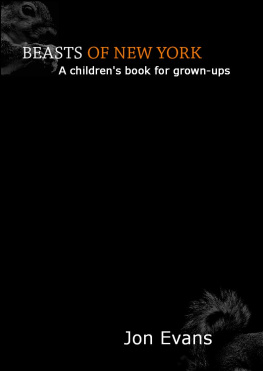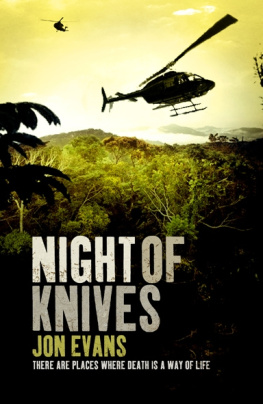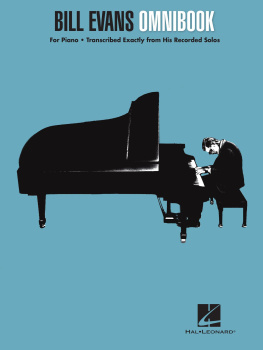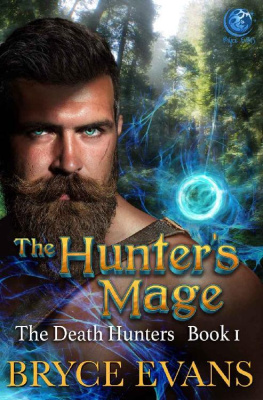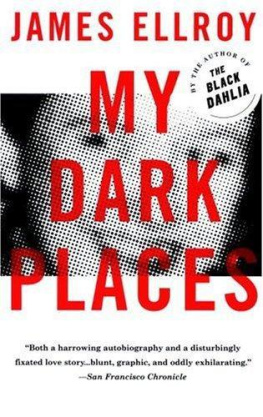Jon Evans - Dark Places
Here you can read online Jon Evans - Dark Places full text of the book (entire story) in english for free. Download pdf and epub, get meaning, cover and reviews about this ebook. genre: Detective and thriller. Description of the work, (preface) as well as reviews are available. Best literature library LitArk.com created for fans of good reading and offers a wide selection of genres:
Romance novel
Science fiction
Adventure
Detective
Science
History
Home and family
Prose
Art
Politics
Computer
Non-fiction
Religion
Business
Children
Humor
Choose a favorite category and find really read worthwhile books. Enjoy immersion in the world of imagination, feel the emotions of the characters or learn something new for yourself, make an fascinating discovery.

- Book:Dark Places
- Author:
- Genre:
- Rating:3 / 5
- Favourites:Add to favourites
- Your mark:
- 60
- 1
- 2
- 3
- 4
- 5
Dark Places: summary, description and annotation
We offer to read an annotation, description, summary or preface (depends on what the author of the book "Dark Places" wrote himself). If you haven't found the necessary information about the book — write in the comments, we will try to find it.
Jon Evans: author's other books
Who wrote Dark Places? Find out the surname, the name of the author of the book and a list of all author's works by series.
Dark Places — read online for free the complete book (whole text) full work
Below is the text of the book, divided by pages. System saving the place of the last page read, allows you to conveniently read the book "Dark Places" online for free, without having to search again every time where you left off. Put a bookmark, and you can go to the page where you finished reading at any time.
Font size:
Interval:
Bookmark:
Jon Evans
Dark Places
Part 1
Chapter 1 Abandon
Remember, I told myself only minutes before we discovered the body, this was supposed to be fun.
I had thought I would enjoy carrying a heavy pack up fifteen thousand vertical feet of uneven stony trail. Now I was too miserable to laugh at my own idiocy. Every upwards step prompted a jolt of pain from the infected blisters on both heels, and my brittle knees ached and popped like a sputtering motor. My pack straps had carved a pair of red furrows into my back, each one filigreed by an itchy fungal infection. I had a nagging headache, shortness of breath, and nausea, a textbook case of low-grade altitude sickness. But what really made the whole situation unbearable was my traveling companion's attitude.
"Isn't it fantastic?" Gavin said, as I trudged behind him. "It's just extraordinary. I've been looking at it for three days now and I never get bored of it."
The it in question was the Annapurna Range of the Himalaya, the glorious snow-capped mountains that surrounded us, and even in my irritable state I couldn't argue with his superlatives. Every time I looked around I felt like I had stepped into a fairy tale. But I would have preferred to appreciate its grandeur from the window of our lodge, preferably while eating momos and drinking an entire pot of lemon tea, rather than following Gavin to inspect the abandoned village. He had browbeaten me into coming with him, knowing that I didn't have the mental strength to argue. Probably thinking that I would thank him later.
I'll thank him with a two-by-four, I thought. I'll show him my gratitude with a ball-peen hammer. Even without my pack, which I had left back at the lodge, each motion felt like a sacrifice. Step, breathe, step, breathe, stop, breathe, repeat.
"Acute mountain sickness, my foot," Gavin said. "I feel fantastic. I've never felt better in my life. I think I'm suffering from acute mountain wellness."
"How nice for you," I muttered.
"Paul! Is that snow?"
I looked up from my feet. Gavin pointed excitedly at the shadow cast by a tall boulder, where a thin layer of this morning's frost had not yet thawed. He was from South Africa, and never in his well-traveled life had he seen snow up close. I was originally from Canada and found the idea of a snowless existence nearly incomprehensible.
"No," I said. "Sorry. Just frost."
"Oh. Pity."
We moved on. The abandoned village was located on a ridge that jutted out above the Marsyangdi river valley like a peninsula. A few dozen low, small buildings of dark rough-hewn stones welded together by frozen mud. It seemed insane to me that people had lived up here. It seemed insane that anyone had ever even considered living up here. Not even the yaks came this high. Nothing grew but lichen, a few particularly stubborn strands of grass, and a thin knee-high layer of vicious thorn bushes. The wind howled ceaselessly, numbing my exposed skin, and even with the sun at its midpoint I could still see my breath. And the effort required to quarry those hundred-pound stones, probably from the Marsyangdi riverbed far below, and bring them up to this godforsaken overlook mad, I thought, absolutely barking, as the Brits on the truck used to say.
Gavin hemmed and hawed over one of the buildings, inspecting its joints and shining his Maglite flashlight inside, while I stood behind and tried to catch my breath. I had been trying all day, and I was beginning to fear that it had gone for good.
"Imagine being born here," he said, and I tried but failed. Some cultural gaps are simply too wide to jump.
He led the way through the village. We must have gone right past the body without noticing it. For a little while we stood on the edge of the cliff, which dropped a hundred sheer feet before easing off a little and tumbling down to the dry riverbed a thousand feet below. By now we were accustomed to precipices. I had lost track of how many times during the previous week I had scrambled across steep drops on narrow and treacherous trails.
Eventually I grew bored of contemplating my own mortality and turned around, intending to return to our lodge. Then I saw him. A fellow backpacker, sitting with his back against one of the village buildings, facing us. Even from a hundred feet away and with the cold dusty wind in my eyes I could tell there was something badly wrong with his face.
"Whoa," I said, and narrowly prevented myself from taking a fatal step backwards in surprise. "What the hell?"
Gavin turned to look and said "Fucking hell."
We advanced without really thinking about it. About halfway there I realized that the man was dead. Not just dead. Killed. Unless he had thrust a pair of matching Swiss Army knives into his own eyes. The red handles protruded from his eyesockets like antennae.
The victim was tall, white, probably mid-twenties, typical backpacker, wearing a blue jacket over a thick green sweater, jeans, and battered hiking boots. There wasn't much blood, but I could smell it in the air like iron. Most of it was pooled on top of his head, dark brown muck filling a dent so large and misshapen that his thick dark hair did not conceal it. The liquid congealed on his cheeks was pale, almost transparent.
Gavin muttered something astonished in Afrikaans. I looked around. Nobody here but the two of us and the cold wind and the mountains. We could see the trekking trail about half a mile away, and the two Gunsang lodges facing one another across it, but they seemed as deserted as this long-abandoned village.
I felt newly vibrant, energetic, ready for action. The sight of the dead man had cued adrenaline to wash through me like some kind of mythical cure-all. My aches and pains had vanished. My head was clear. I felt as if gauze had been lifted from all of my senses; I had never seen so clearly, so distinctly. The body's instinctive fight-or-flight response can be a wonderful thing. I can understand how daredevils get addicted to it.
I crouched down a few inches away from the body, examining it carefully, conditioned not to touch anything by years of cop shows and detective novels. Another flush of energy coursed down my spine like electricity. Every hair on the back of my neck stood to attention, like an army under review. My skin actually crawled. Until that moment I had always thought that was just a melodramatic expression.
Even my nausea had, ironically, faded away. I felt more fascination than revulsion as I examined the body. His arms hung loose by his side. A tan line revealed that his watch was missing. He hadn't shaved in a few days. His mouth was slightly parted as if in contemplation. I avoided looking at the eyes.
"Christ almighty," Gavin said.
"Yeah," I said.
"The knives are a little unnecessary, aren't they?" he asked, his accent much harsher than usual. "I mean, Jesus, they practically cracked his skull in two."
"Yeah," I repeated.
Nightmare, I told myself. Just another nightmare. You'll wake up any moment now. What I was seeing wasn't real, couldn't be real. My subconscious had mixed the past and the present into this lethally horrible cocktail and was serving it up to me as I slept.
It would have been a comforting belief. But it wasn't possible. Dreams often seem real, at least while they last, but sane people cannot mistake reality for a dream. No matter how much we might want to.
Gavin dropped to his knees next to me and touched the corpse's arm experimentally.
"Don't," I said. It seemed like a violation.
"Why not?"
I searched for a justification. "We should leave the scene alone."
He gave me a don't-be-stupid look. "For who? The Nepali police? Somehow I doubt they've got a crack homicide investigator in the district."
Which was true. Fingerprinting, DNA testing, forensic analysis there would be none of that here. Just a bunch of minimally-educated Third World policemen here to rescue stranded tourists and fend off Maoist insurgents, not to investigate murders.
Font size:
Interval:
Bookmark:
Similar books «Dark Places»
Look at similar books to Dark Places. We have selected literature similar in name and meaning in the hope of providing readers with more options to find new, interesting, not yet read works.
Discussion, reviews of the book Dark Places and just readers' own opinions. Leave your comments, write what you think about the work, its meaning or the main characters. Specify what exactly you liked and what you didn't like, and why you think so.

